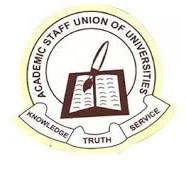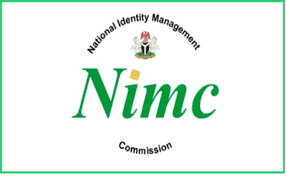Education
Six Nigerian Universities to Benefit from EU’s €27m Funding

By Eddy Ochigbo
No fewer than six Nigerian Universities have been selected to benefit from the 15 Intra-Africa Mobility Scheme Projects funded by the European Union (EU) with €27 million under the flagship Youth Mobility for Africa.
Permanent Secretary, of the Federal Ministry of Education, Mrs.
Didi Walson-Jack, who signed the agreement at the Global Gateway High-Level Event on Education in Brussels, said Nigeria would also benefit from the regional Team Europe Initiative on Opportunity-driven Skills, Vocational Education and Training in AfricaUnder the initiative, the European Union would spend €27 million, allocating €1.
8 million to each of the Projects in the education and healthcare sectors in Africa.These Projects, which are to be facilitated by various Universities, aim to enhance learning mobility opportunities for Students, Trainees, and Staff across the Continent, focusing on developing high-level green and digital skills.
The participating Universities include the University of Lagos, the University of Port-Harcourt, Ebonyi State University, the Federal University of Technology, and the University of Nigeria.
Education
Massive JAMB Failure Sparks Concern Over Education Standards

The 1.5 million candidates who scored below 200 out of the 1.9 million who sat for the 2025 UTME conducted by the Joint Admissions and Matriculation Board (JAMB) have ignited national concern.
The concerns are in relation to the quality of education and students preparedness in the examination.
Reacting to the development, Ike Onyechere, Founder, Exam Ethics Marshall International (EEMI), in an interview on Tuesday, said that the outcome was not surprising.
According to Onyechere, the examination is now being administered with ethics and professionalism hence the massive failure.
He added that the massive failure had exposed the deep-rooted problems in the nation’s education system.
”JAMB has made commendable efforts to ensure the integrity of the examination process by reducing opportunities for malpractice.
”I don’t think the JAMB statistical analysis should surprise anybody,” he said.
He emphasised that universities were increasingly alarmed by the academic quality of incoming students, noting that many of them lack basic foundational knowledge necessary for tertiary education.
Onyechere attributed the trend to systemic issues, including inadequate preparation, the inclusion of underqualified candidates, and a widespread cultural dependence on exam fraud.
”There’s moral infrastructure decadence in the system. It’s not just about the students. It involves stakeholders; schools, parents, and the government.
“Many students rely on fraudulent means to pass, and now that JAMB has blocked those avenues, their lack of preparedness is glaring,” he added.
He also noted that many candidates were not academically ready, as some were still in SS2 or underage, having not completed the syllabus.
He proposed a reform in the registration process, suggesting that only candidates with five credits in WAEC or NECO be allowed to sit in future for the UTME.
According to him, this will significantly reduce the number of applicants from nearly 2 million to about 1 million and ensure a more qualified candidate pool.
He also dismissed claims that the Computer-Based Test (CBT) format could be a barrier to performance.
”The CBT is easier in many ways. It’s mostly objective, and technology is now part of everyday life, even market women are technologically inclined. We can’t blame CBT for the poor results,” added.
Onyechere urged students to focus on talent discovery and career alignment rather than chasing certificates.
“Exams are not rocket science. It’s about working hard and understanding your strengths. Education should be a journey of self-discovery, not just certification,” he said.
He applauded government efforts to prioritise trade and vocational subjects in the curriculum, underscoring the importance of practical skills in today’s world.
He called on education stakeholders to reflect on the deeper issues in the examination failure and implement reforms to save the future of Nigeria’s academic system
Education
UBEC to roll out nationwide smart education technology

The Universal Basic Education Commission (UBEC) has announced plans for a comprehensive deployment of technology to transform basic education delivery across Nigeria.
The Executive Secretary of UBEC, Mrs Aisha Garba, disclosed this on Monday in Abuja, during a media briefing ahead of the 2025 International Conference on Smart Education and Digital Literacy (ICSE 2025).
Report says that the conference was jointly organised by the commission and the Korea International Cooperation Agency (KOICA).
The three-day conference, scheduled for May 6 to May 9 in Abuja, is with the its theme: “Empowering African Smart Education Through Emerging Technologies”.
According to Garba, the event is aimed at repositioning Nigeria to align with some other African countries in integrating technology into education.
She cited the example of Rwanda, which has been using technology in basic education system for many years.
“They they have reached a level of using AI in their classrooms.
“For us in Nigeria, we have already started by doing the smart schools, which already many of you are aware of, ” she said.
The executive secretary revealed that there were 36 plus one smart school in each of the states in Nigeria.
She said that the smart schools were equipped with high technology, content studios, and teachers that were already skilled in the technology of teaching and learning in classrooms.
Garba emphasised the need to equip basic schools with the infrastructure necessary for a smart education system.
“From the data, it shows that less than 50 per cent of public primary schools in Nigeria have digital technology, ” she said.
She said that whether a child was in the rural area, semi-urban or urban area, there should be a technology appropriate to be applied.
Also speaking, the KOICA Country Director, Kim Eunsub, emphasised South Korea’s support for Nigeria’s smart education journey through the KOICA Smart School Initiative in collaboration with UBEC.
Eunsub said that the initiative had already facilitated the construction of state-of-the-art smart schools, the training of teachers and administrators, and the sharing of learning resources.
He described the upcoming conference as a platform to deepen collaboration and build on the progress of the initiative.
Eunsub further revealed plans for a second phase of the project to begin in 2026.
Earlier, Deputy Executive Secretary (Technical) of UBEC, Rasaq Olajuwon, said that the conference sought to expand access to quality basic education through inclusive, technology-driven initiatives.
“We are delighted to have 26 distinguished dignitaries, 144 teachers from across Nigeria, and 30 delegates from various African countries joining us,” he said.(NAN)
Education
ASUU Supports 12 Indigents Students With Scholarships in Bauchi Zone

The Academic Staff Union of Universities (ASUU) has awarded scholarships to 12 academically outstanding but financially disadvantaged indigents students across its Bauchi Zone.
The Bauchi Zone includes: Abubakar Tafawa Balewa University (ATBU), Sa’adu Zungur University (SAZU) Bauchi.
Others are Gombe State University, Federal University Kashere, University of Jos and Plateau State University Bokkos.
During the presentation held at the ASUU Secretariat, SAZU Bauchi on Saturday, the 12 beneficiaries received cheques worth ₦200,000 each from the national body of the Union.
Prof. Christopher Piwuna, Convener of the ASUU Grant, Research and Publications Committee was represented by Prof.
Lawan Abubakar, the immediate past Zonal Coordinator.Piwuna explained that the scholarships aimed to support brilliant students who were hindered by financial hardship.
“This initiative was born out of the need to counter the government’s rising imposition of school charges, which continues to burden students and their families,” he said.
Piwuna added that ASUU believed that such financial aid should be a grant, not a loan, noting: “We don’t expect any repayment from the beneficiaries or their parents.”
Prof. Namo Aku, the Zonal Coordinator, said that while the national body supported 12 students, the six universities in the zone collectively sponsored additional 18 indigenous students.
“ATBU and Gombe State University sponsored five students each, Plateau University and University of Jos sponsored two each, while SAZU and Federal University Kashere sponsored two students apiece,” he said.
Aku emphasized that ASUU’s mission includes supporting the less privileged through collective contributions from lecturers who are passionate about students’ success.
Speaking on behalf of the beneficiaries, Bappa Salisu, a Pharmacy student at SAZU, expressed gratitude to the Union.
“We are deeply thankful for this opportunity. It motivates us to work harder and live up to the expectations of those who believe in us,” he said



















